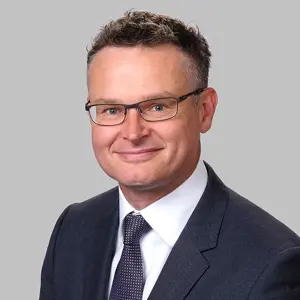
Tim Clipstone
Partner | Legal
Guernsey

Tim Clipstone
Partner
Guernsey
No Content Set
Exception:
Website.Models.ViewModels.Components.General.Banners.BannerComponentVm
In this useful guide to hedge funds in Guernsey, our Investment Funds team answers some of the most frequently asked questions covering regulation, structures, registration and authorisation.
All Guernsey funds are required to be registered or authorised pursuant to the Protection of Investors (Bailiwick of Guernsey) Law, 1987 (the PoI Law) and all investment managers, advisers, administrators and custodians carrying on business in or from within Guernsey are subject to licensing under the PoI Law.
Yes, the Guernsey Financial Service Commission (GFSC) has issued notes regarding how it will treat applications for authorisations for hedge funds and confirmed these also be applied to registered funds.
In fact, many hedge funds are already administered by Guernsey-based administrators.
Funds may be established as:
stand-alone companies limited by shares
protected cell companies
incorporated cell companies
limited partnerships (with or without legal personality), and
unit trusts
There are two types of fund regulation in Guernsey:
Authorised funds are regulated directly by the GFSC. Hedge funds would most commonly be regulated under either the Class B Rules or the Class Q Rules issued by the GFSC. The GFSC has confirmed that derogations from the full scope of these rules are available to hedge funds with Qualifying Investors (broadly institutional or expert investors):
allowing the prime broker to be designated as the custodian
disapplying the requirement that the custodian (or prime broker) be regulated in Guernsey, but instead being regulated in an acceptable jurisdiction, provided it has substantial net worth
disapplying the requirement that such a custodian or prime broker have duties of oversight over the fund manager
disapplying the requirement that a prime broker offer physical segregation of fund assets from its own assets, provided that the offering documents making clear and prominent disclosure of the risks inherent in such arrangements
permitting arrangements which allow preliminary estimation of net asset value (NAV) to be used on subscriptions and redemptions - on this basis, subscription monies could be taken into a fund before the final number of shares to be allocated had been determined and interim redemption monies could be paid out of a fund, subject to a later final adjustment once NAV calculation has been completed, provided the risks of operating in such a manner are fully disclosed and the method for estimating NAVs was demonstrably robust
allowing investors' money to be paid to the fund before the number of shares or interests has been determined, to allow deployment of investor funds upon receipt, with the issue of shares or interests being undertaken subsequently
Registered funds are regulated by the GFSC albeit under a lighter touch regime than for authorised funds. The GFSC relies on the due diligence performed by a Guernsey licensed administrator in order to satisfy itself of suitability of the fund (and its principals) for registration.
There are two registered fund types that are ideal for hedge funds:
open-ended RCIS fund
open-ended QPIF
Open-ended RCIS funds are registered under the Registered Collective Investment Scheme Rules 2025 (the RCIS Rules), which incorporate the Prospectus Rules 2025.
The GFSC has confirmed that the derogations applicable to authorised funds for Qualifying Investors would also apply to registered open-ended funds established for Qualifying Investors. In addition, there would usually be further derogations from the Prospectus Rules granted by the GFSC regarding disclosure of significant beneficial interests in the fund itself.
The RCIS Rules and the Prospectus Rules are designed to be lighter touch regulations than the rules applicable to Class B and Class Q funds and would suit funds aimed at institutional and expert investors.
In addition, Guernsey has a class of registered private investment funds (PIFs) which do not require the publication of a prospectus or offering document and are subject to light touch rules. These are registered under the Private Investment Fund Rules and Guidance 2025.
The QPIF is ideally suited to hedge funds because:
the investors are qualified investors (which include professional investors under the UK and / or EU AIFMD definitions or accredited investor definition for US purposes)
there is a no limit on the number of investors or number of offers
there is no requirement to have a custodian
there is no requirement for an audit where there is no commitment to do so under the offering terms
There is also an AIFMD compliant registered fund structure known as the Manager Led Product (MLP), which would become attractive to managers if the EU's marketing passport were extended to structures incorporated outside the EU, as Guernsey is approved for the marketing passport for such structures if it becomes available.
The fund must be incorporated or formed in and under the laws of Guernsey.
The fund must have a Guernsey licensed administrator (in some rules described as the 'designated manager'). This does not mean that the administrator cannot outsource certain functions to suitable entities outside Guernsey, and this commonly occurs provided the outsourcing is undertaken in accordance with the GFSC guidelines.
The general partner (GP) of a fund formed as a limited partnership (LP) would ordinarily require a manager's licence to act as such. However, most hedge funds will have a corporate structure and a third-party investment manager based outside Guernsey.
The QPIF regime allows but does not require the manager of a PIF to be a Guernsey entity and licensed as a PIF manager, which is applied for at the same time as the fund is registered. Such a manager is not subject to the full licensing regime - for example, the Conduct of Business Rules do not apply to the PIF manager.
QPIFs do not require a custodian, while all other Guernsey domiciles open-ended funds do require a custodian which must be licensed in Guernsey, or elsewhere if a derogation is granted, which must oversee the activities of the fund's administrator / manager. As mentioned above, the GFSC have recognised that for hedge funds that are restricted to Qualified Investors, these requirements will be waived and the GFSC will also recognise the prime broker as the custodian where suitable.
Corporate funds are not required to have any Guernsey resident directors, although there is a strong pool of suitably qualified and experienced non-executive directors (NEDs) in Guernsey.
Guernsey licensees are required to have at least two Guernsey resident directors.
All funds other than QPIFs need to be audited by an approved auditor. QPIFs do not need to be audited but if they are, the auditor needs to have a presence in Guernsey.
Yes, if the fund meets the Green or Natural Capital criteria, providing benchmarked assurance to investors and third parties as to the green and sustainable credentials of the fund. The designations are also available for application by existing funds that meet the criteria.
A registered open-ended fund will be registered within three days of the application being submitted.
QPIFs are registered within one day of submission of the request for registration.
Authorised Class B and Q funds are processed within three days on a fast-track basis, provided they are qualifying investor funds (QIFs). Applications for authorisation of non-QIF authorised funds takes between four to six weeks.
The Guernsey Green Fund or Natural Capital Fund designation is granted within five days of submission of the application.
Ogier is a professional services firm with the knowledge and expertise to handle the most demanding and complex transactions and provide expert, efficient and cost-effective services to all our clients. We regularly win awards for the quality of our client service, our work and our people.
This client briefing has been prepared for clients and professional associates of Ogier. The information and expressions of opinion which it contains are not intended to be a comprehensive study or to provide legal advice and should not be treated as a substitute for specific advice concerning individual situations.
Regulatory information can be found under Legal Notice
Sign up to receive updates and newsletters from us.
Sign up
No Content Set
Exception:
Website.Models.ViewModels.Blocks.SiteBlocks.CookiePolicySiteBlockVm